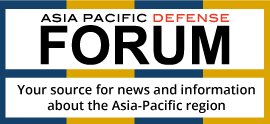The United Development Party (PPP) hopes to form a coalition with four other Islamic parties for the 2014 Indonesian elections, its deputy chief says.
The PPP planned to invite the National Mandate Party (PAN), the Prosperous Justice Party (PKS), the National Awakening Party (PKB) and the Crescent Star Party (PBB) to join it in a Muslim partisan alliance for the elections, PPP Deputy Chairman Arwani Thomafi told reporters in Jakarta last month.
"We need this coalition of Islamic parties because we have to face a strong competitor, especially since the Indonesian Democratic Party of Struggle (PDI-P) will collaborate with the Golkar Party. It will be a huge challenge for us," Arwani said.
Indonesia is gearing up for national, provincial and district-wide elections April 9th, followed by a presidential election on July 9th. Term limits prevent President Susilo Bambang Yudhoyono from seeking re-election.
Emerging candidates
The PPP, PAN, PKS, PKB, and PBB are among a dozen parties – including Golkar and PDI-P – eligible to contest the 2014 elections. The PPP, PAN, PKS and PKB hold 38, 46, 57 and 28 seats, respectively, in the 560-seat House of Representatives (DPR).
The Crescent Star Party (PBB) has no seats, but Yusril Ihza Mahendra, its advisory board head, on December 8th announced his bid for the presidency. For its part, the PPP named Religious Affairs Minister Suryadharma Ali as its presidential candidate, the Jakarta Post reported.
Since Arwani's announcement, the four other Muslim-based parties have yet to make public whether they would agree to an alliance with the PPP for the coming elections.
In September, PKB Chairman Muhaimin Iskandar said he was open to Islam-based parties jointly picking former Constitutional Court Chief Justice Mahfud MD as a presidential candidate. On Monday (December 16th) however, the PKB picked dangdut singer Rhoma Irama as its candidate.
Yet the idea of a coalition seems to have considerable support. According to a National Survey Institute poll cited by the Jakarta Globe, 45.6% of respondents favoured a coalition of Islamic parties, compared with 23.7% who opposed it.
Need for a unifying figure
However, such a coalition could not win the presidential race because it would lack a unifying figure, political analyst Muhammad Qodari said.
"The coalition of Islamic parties will not help them in the presidential election. These Islamic parties need a popular leader, and they do not have one until now. In the future, PPP may have to change their strategy to look to form coalitions with other parties, and not limit it to Islamic parties," Qodari told Khabar Southeast Asia.
Secular parties, meanwhile, are doing their best to attract the followers of Islam-based parties, according to Ahmad Fuad Fanani of the Jakarta-based Maarif Institute for Culture and Humanity.
"Secular parties want to portray themselves as accommodating. The ruling Democratic Party (PD), for example, chaired the Pornography Law task force. The Golkar Party and the Indonesian Democratic Party of Struggle (PDI-P) also support the establishment of Sharia law in a number of regions, although the PDI-P also has a firm stance against the policy to criminalise the Ahmadiyah," the Jakarta Post quoted him as saying.

![Members of the GKI Yasmin and HKBP Filadelfia congregations perform during a December 23rd, 2013 Christmas service outside the State Palace in Jakarta. For this year's Christmas season, the Indonesian government again is stepping up security to protect the Christian minority. [Rosandi/Khabar]](/shared/images/2014/12/24/141224-ANDHIKA_ID_CHRISTMAS-100_67.jpg)
![Australians embrace at a makeshift memorial in Sydney's Martin Place, the site of the December 15-16th café siege. [Ade Mardiyati/Khabar]](/shared/images/2014/12/23/141223-ADE_AU_CAFEREAX-100_67.jpg)
![Malaysia Police Chief Khalid Abu Bakar addresses a press conference in Sepang on March 11th. On December 15th, he announced the recent capture of seven Indonesians with their five children. Allegedly, they were en route from Malaysia to Syria, seeking to join the Islamic State of Iraq and Syria (ISIS). [Manan Vatsyayana/AFP]](/shared/images/2014/12/20/141220-ALISHA_MY_ARRESTS2-100_67.jpg)
![Australians embrace at a makeshift memorial in Sydney's Martin Place, the site of the December 15-16th café siege. [Ade Mardiyati/Khabar]](/shared/images/2014/12/23/141223-ADE_AU_CAFEREAX-100_67.jpg)
Reader Comments
CLICK HERE to Add a Comment
Add A Comment (Comments Policy)* denotes required field